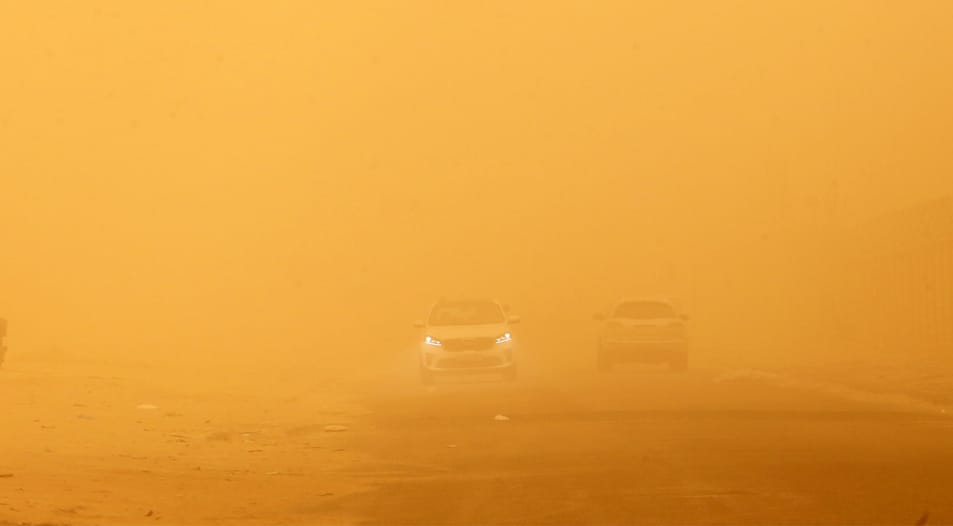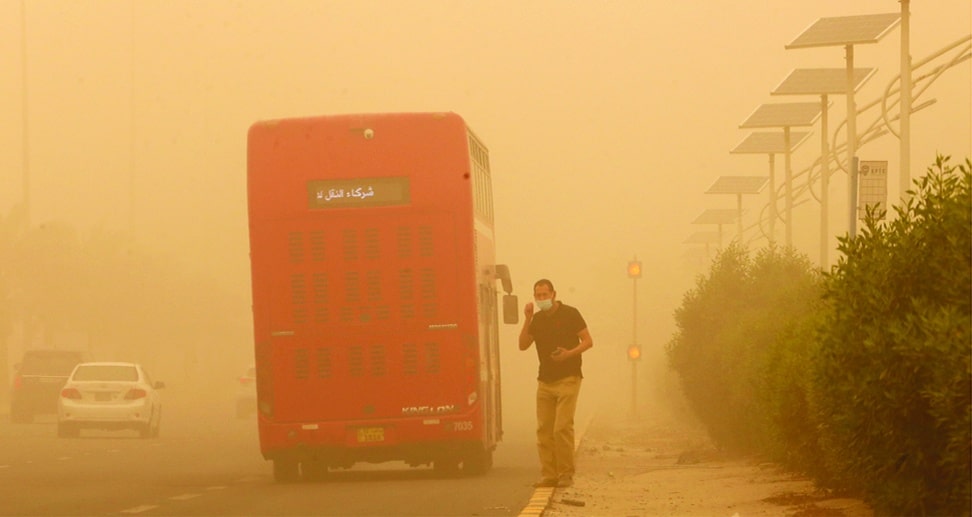By Ahmad Jabr
KUWAIT: A massive dust storm coming from Iraq affected large areas of Kuwait on Monday, dropping visibility to less than 1,000 km and suspending flights from and to the country. Kuwait Meteorological Center said the dust storm was accompanied with strong winds exceeding 50 km/h in speed, while sea waves would reach as high as six feet. The bad weather conditions, described as "severe" in the meteorological center's weather warning, was set to last through the early hours of Tuesday morning before the dust storm would start to subside.
Flights to and from Kuwait International Airport were temporarily halted on Monday due to the dust storm. Imad Al-Jalawi, Deputy Director General for Air Navigation Services at the Directorate General of Civil Aviation, said flights would be rescheduled and regular aviation would resume once visibility improved.
The Interior Ministry meanwhile issued a warning to motorists to avoid driving unless necessary and take extreme caution while on the road as visibility dropped to as low as 100 meters especially in open areas. The health ministry also warned people with breathing difficulties to exert extra caution.
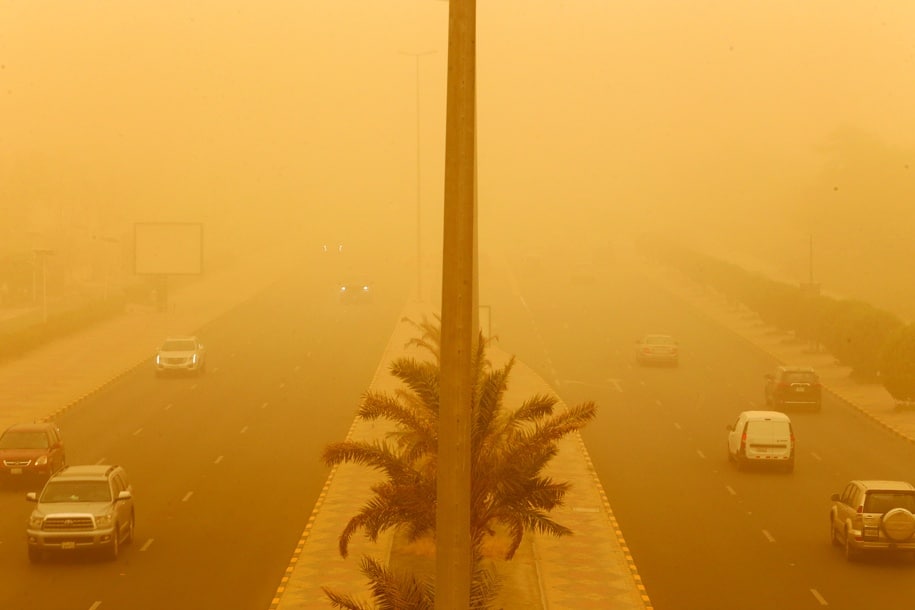
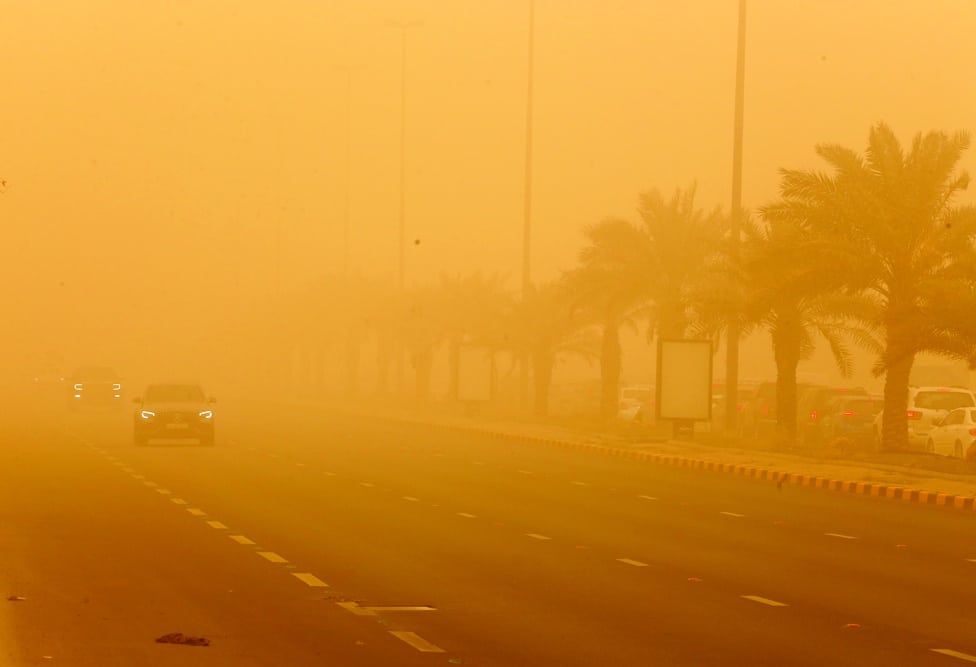
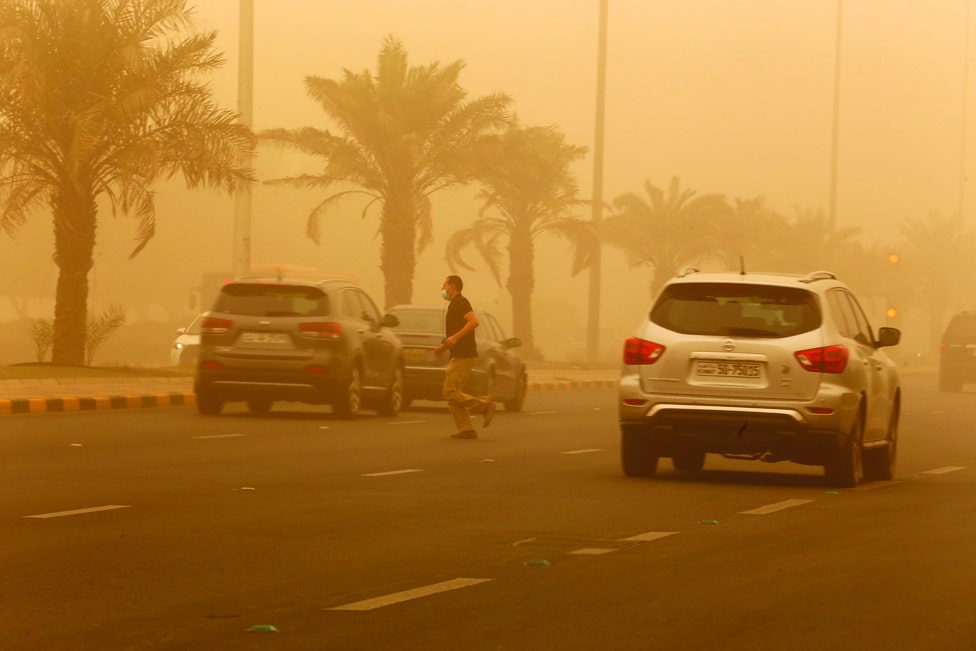
The Amir Cup Final between Kazma and Salmiya, originally scheduled for Monday, was also postponed for next week due to the bad weather conditions. His Highness the Deputy Amir and Crown Prince Sheikh Mishal Al-Ahmad Al-Jaber Al-Sabah was scheduled to attend the high-profile match at Sheikh Jaber International Stadium. Meteorologist Jamal Ibrahim described the dust storm as strong and would cover "most of the State of Kuwait." He said the weather condition may start improving by Tuesday evening while temperature may reach 43 degrees Celsius.
Kuwait has been hit by frequent dust storms this year well ahead of their usual season. Most of the dust is carried from Iraq to Kuwait by northwesterly winds brought by the Indian monsoon depression affecting the region. Another massive dust storm hit Iraq yesterday; the eighth since mid-April. Iraq has been battered by soil degradation, intense droughts and low rainfall linked to climate change.

